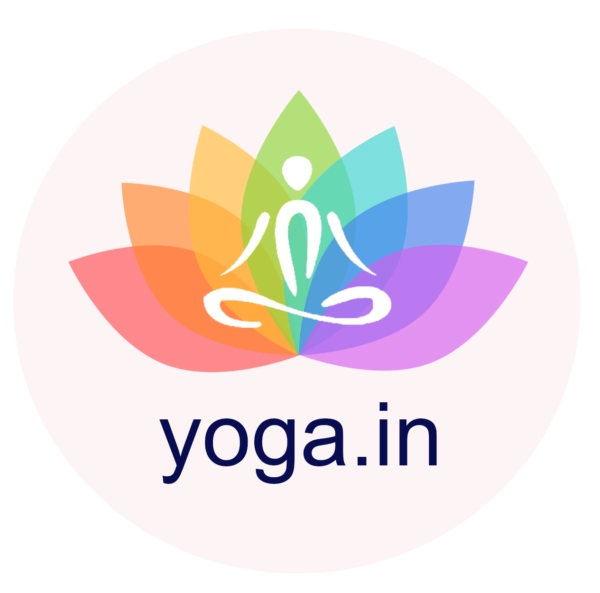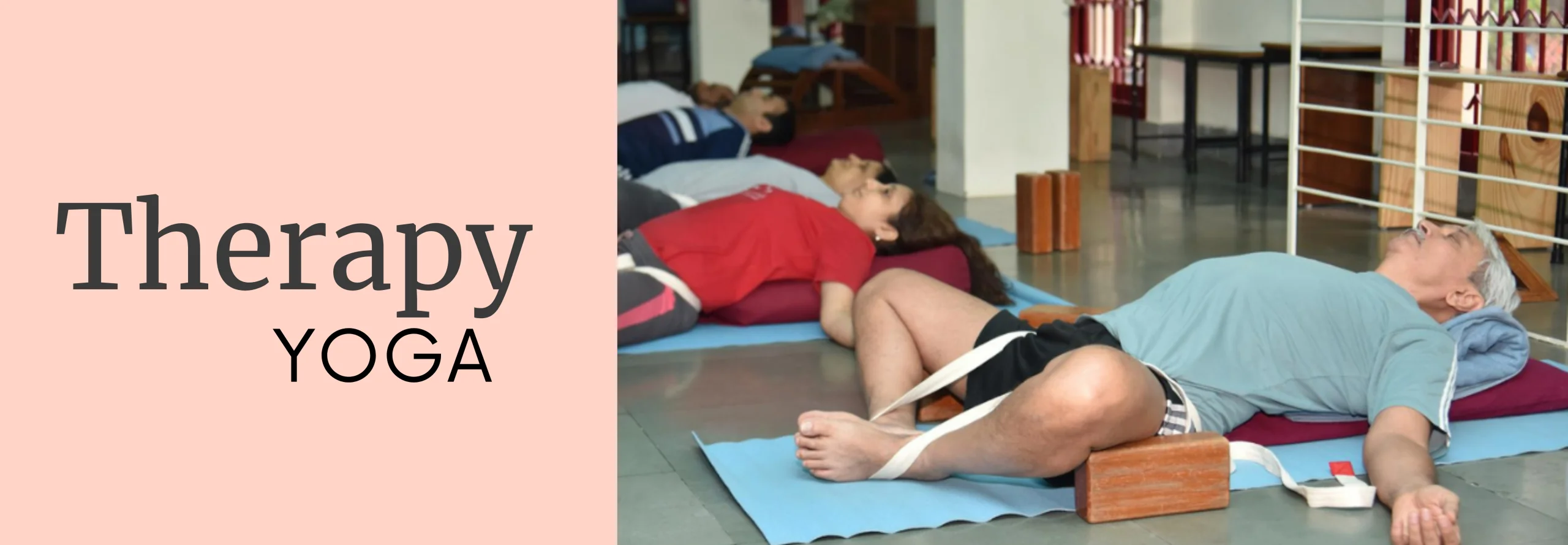
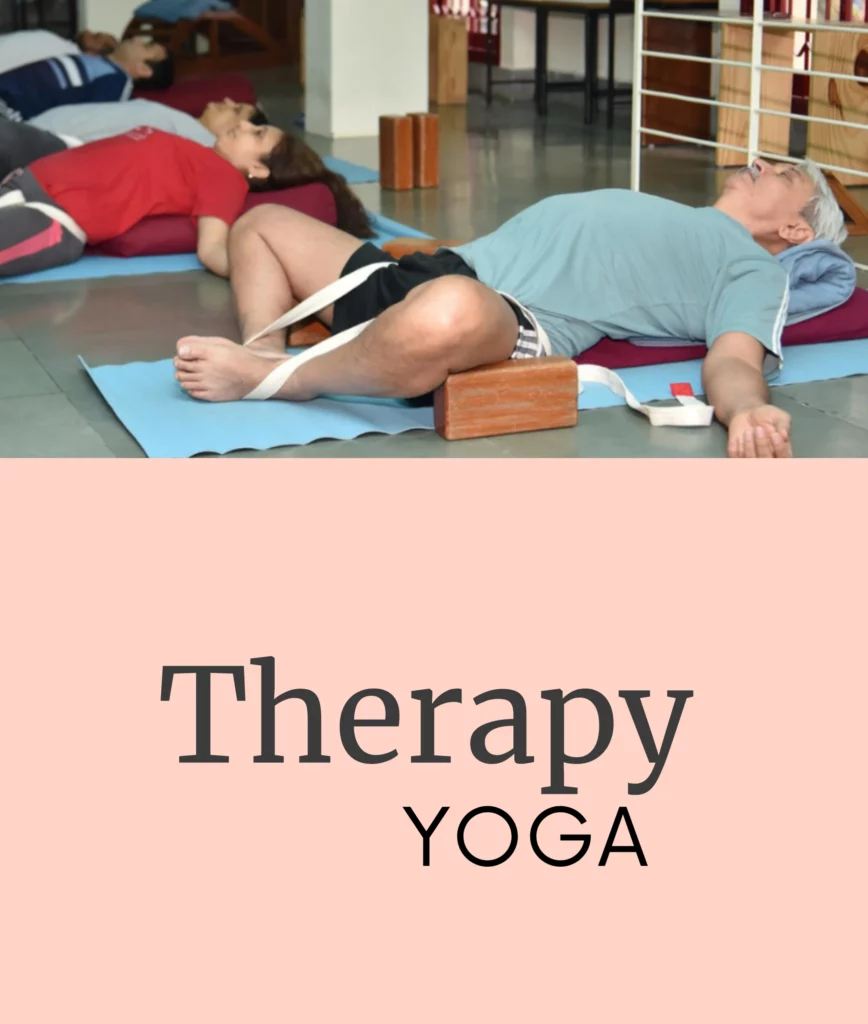
Yoga Therapy Course
What is Yoga Therapy Course?
Therapy yoga designed by Guruji BKS Iyengar is a self-empowering process where one implements personalized and evolving yoga practices with the help of a yoga therapist. It not only addresses the illness in a multi-dimensional manner but also helps alleviate the suffering in a progressive, non-invasive and complementary manner. Depending on the nature of the ailment, Iyengar yoga therapy is curated to facilitate the healing of the individual at all levels. The therapist works skillfully with the patient to reduce the impact of the health condition, enabling the individual to make their way back to health through the practice of yoga. It is beneficial in treating ailments like asthma, autoimmune diseases, anxiety and depression, stress, back pain, cancer, cardiac, carpal tunnel syndrome, chronic obstructive pulmonary disease, Covid-19, hypertension, irritable bowel syndrome, neck pain and spinal cord and other injuries.
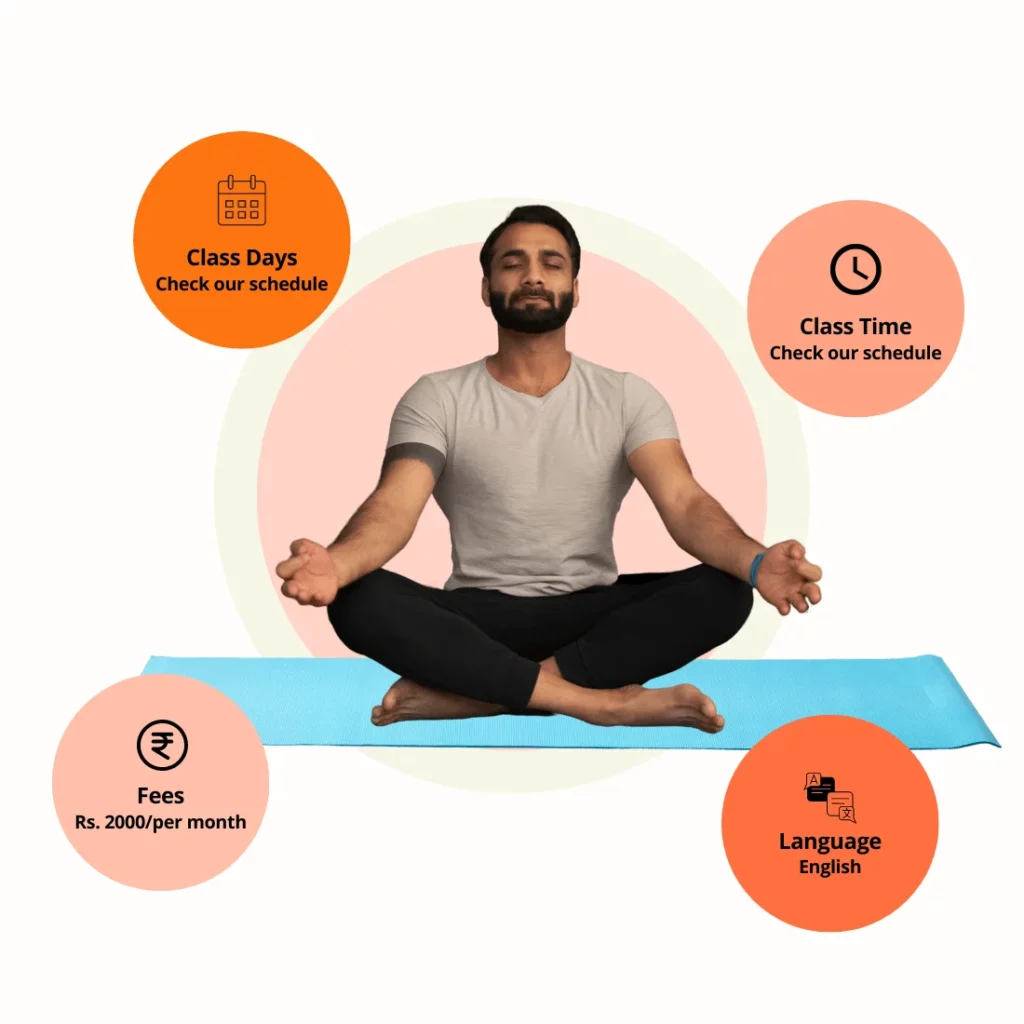
Benefits
Physical benefits
- Reduces back pain and relieves muscular skeletal problems
- Helps improve diabetes, high blood pressure, Parkinson and asthma
- Helps in relieving autoimmune diseases, IBS(Irritable bowel syndrome), arthritis and osteoporosis
Mental benefits
- Helps reduce stress, anxiety, insomnia and depression
- Effective in dealing with schizophrenia and addiction
- Helps in recovering from postnatal depression
Emotional benefit
- Help solve eating disorder
- Helps deal with PTSD (post-traumatic stress disorder)
- Promotes emotional regulation for autistic individuals
FAQ
This is one of the most common questions that students ask us. Iyengar yoga therapy was devised specially to help people with ailments heal from their pain and suffering. So, yes you can, still participate in this class, and chances are, by the time you are done, you may become more flexible than before.
Our yoga therapists build a personalized plan according to your injuries that enables you to modify poses and exercises safely with your injuries, physical limitations, and other conditions. Simply be open about your concerns with your yoga therapist and continue to communicate with your medical professionals.
Yoga is not a religion, although it is a spiritual practice for many. Others use their yoga practice alongside their religious practices without conflict.
Yes! Yoga therapy includes a variety of tools that can help healthy, happy people live even more vibrant and fulfilling lives. For example, evidence supports the use of meditation, which is a component of yoga, for improved relationships, sleep, memory, and concentration. The poses can improve your posture and help you feel more flexible, strong, and balanced.
Yoga therapy is great for beginners because it is usually done individually with a yoga therapist who focuses on you completely. This means it can be less intimidating and you can get more attention from the teacher. You don’t need to be able to do fancy poses at all! —to benefit from yoga therapy.
You can wear anything that is comfortable and allows you to move! Traditionally, yogis wore loose, breathable clothing that allowed them to move around freely. A simple body-hugging t-shirt and tracks would also do.
Ideally, it is advised that you do not consume any food 2-3 hours before your class. However, if you have low blood sugar, low blood pressure, or some other concerns, you may need a small snack within that time frame. In which case it is best to check with your physician or healthcare provider.
Every therapy class is designed personally by the yoga therapist to fit the requirements of their patient. It would completely depend on what your goal for attending yoga therapy.
Teachers
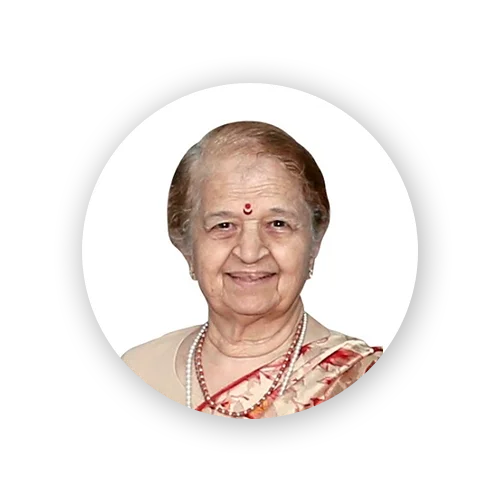
Ina Dani
Prenatal Yoga, Therapy Classes
After suffering from severe health conditions in her 40s, Ina Dani discovered the magical healing powers of yoga under the guidance of Yogacharya Guruji B.K.S Iyengar and Geetaji. After treating her own ailments, she created a center where all yoga teachers could come and teach. As she benefitted from Iyengar Yoga her intention was to benefit others and society at large.
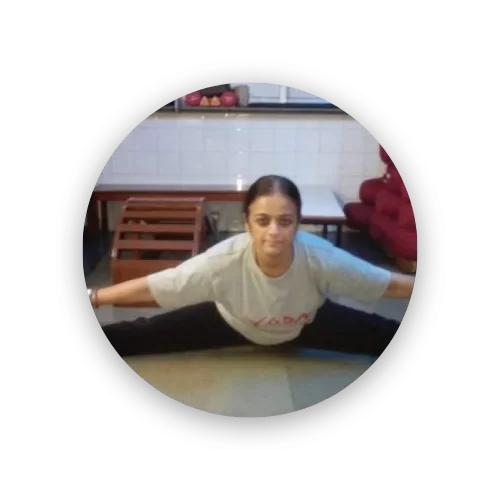
Anju Mehta
Prenatal Yoga, Therapy Classes
A specialized trainer who conducts prenatal yoga classes at the Iyengar Yoga Institute in Mumbai, she has been teaching yoga for the past 15 years, Anju believes that practicing yoga during pregnancy can strengthen, nourish and prepare the expectant mother for smooth childbirth
The roots of yoga dig deep into the soil of ancient India, tracing back over 5,000 years. Its genesis lies in the Indus-Sarasvati civilization, where the earliest known yogic teachings were inscribed on fragile palm leaves. The word ‘yoga’ itself finds its origins in the Sanskrit language, signifying the union of mind, body and spirit.
Yoga, as we know it today, found its first systematic expression in the Vedas, ancient texts that form the backbone of Indian philosophy. The Rig Veda, dating back to around 1500 BCE, contains hymns dedicated to the cosmic forces, incorporating early yogic concepts and practices.
The great sage Patanjali often hailed as the ‘Father of Yoga,’ systematized the practice in his monumental work, the Yoga Sutras. Around 200 CE, Patanjali distilled the essence of yoga into a comprehensive guide, outlining the Eight Limbs of Yoga, a roadmap for spiritual and ethical living.
As centuries unfolded, different paths of yoga emerged, each catering to diverse spiritual inclinations.
